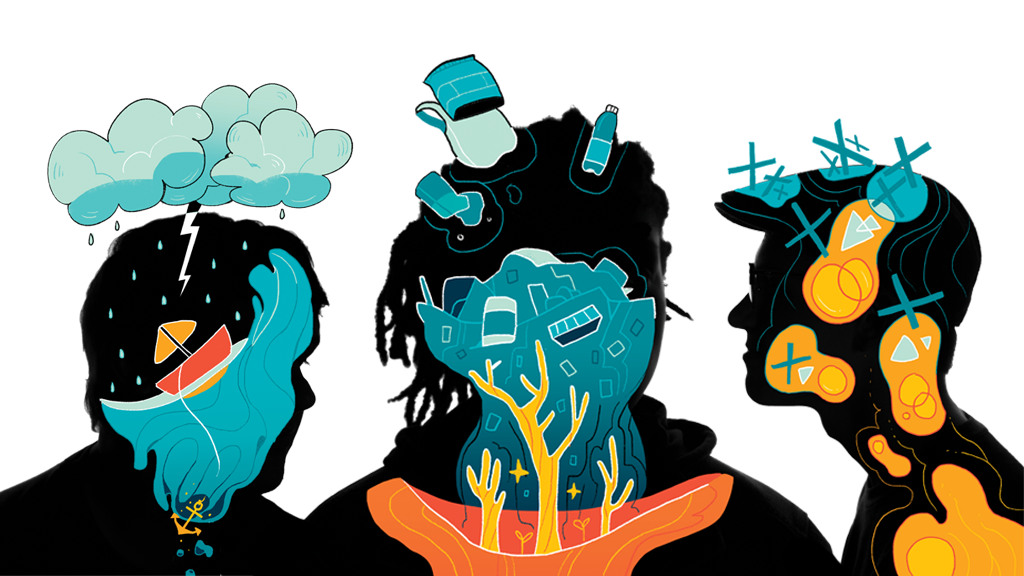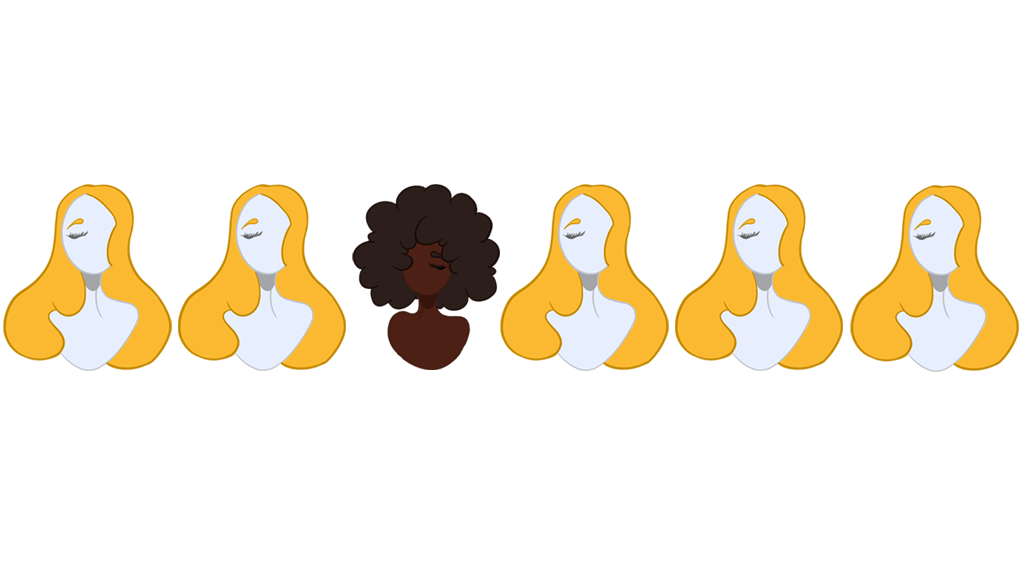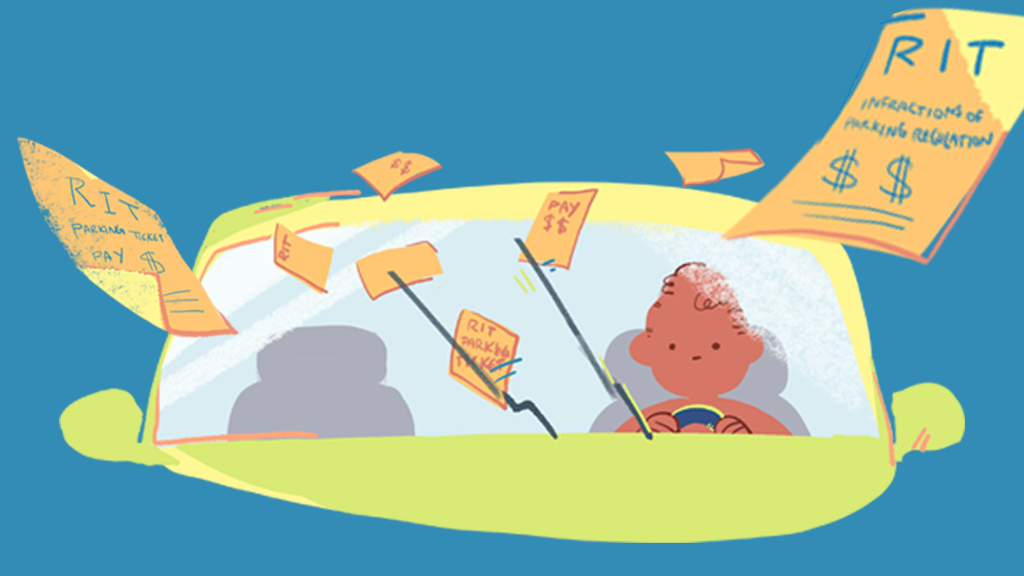Like many people from previous God-fearing generations, my mother tried to take her children to church and teach them about God. Like many millennials, my sisters and I wouldn’t have it. My parents gradually gave up their efforts in response to relentless arguing. We believed that our lack of faith wasn’t something that could be changed through religious education.
One residual behavior that my mother maintained long after our church days was her propensity to correct my language regarding God. Though she is hard of hearing, she never missed me mumble, “oh my God” under my breath. According to her, I was breaking a commandment by taking the Lord’s name in vain. It didn’t matter to her that I didn’t believe in God; It didn’t matter to me that I was breaking a commandment.
In today’s culture, it might be more common to say or type “OMG” than recite the whole phrase, but it is still used as a common expression of frustration. This phrase, along with many others, is uttered without minding its literal, original meaning, which is roughly “I can’t believe God would let this happen.”
At their core, people are reflections of their environments. People have no choice but to develop within the culture that surrounds them, and my culture coerced me into using that phrase as an expression of frustration because that’s how I learned it in context.
Additionally, part of the environment we all live in is ourselves, and this isn’t recognized often. Practicing language as a child by repeating what one hears is a part of the learning process. This shows that we not only learn from imitating others, but also by imitating ourselves.
As people develop, they tend to limit their language to fit their character. We’re all guilty of using the same vocabulary on a day-to-day basis until the time comes to write an English paper. This tendency, when combined with the innate human tendency to focus attention on negative things, can lead to a positive feedback loop of self-deprecating behavior.
Culture and Context
Joseph Hill, a professor from NTID’s American Sign Language and Interpreting Education department and an expert in linguistics, talked about context.
“For any language, words can be interpreted differently by different people,” he
“For any language, words can be interpreted differently by different people.”
When people get together with different understandings of the same language, the meanings of words can be stretched to find a middle ground. This is exemplary in areas, like New York City, that have their own slang words. Dictionaries will forever struggle to contain all of these constantly adapting meanings.
On the other hand, words and phrases can lose their original meaning over time as they are used in different social contexts.
As many people might relate, I learned the phrase “oh my God” through repetitive exposure to it as a child. By observing people use it to express “oh wow,” “I can’t believe this,” “look at this” or “this is frustrating,” I was able to gain a conceptual interpretation of the phrase to use at my own disposal. Tina Sutton, a professor in the Department of Psychology who specializes in the psychology of language, described this phenomenon as “pragmatics.”
“When you talk about pragmatics, you’re focusing on context, or higher-level information,” she said. “So, when you use something like ‘oh my God,’ you might simply be using it as an emotional expression.”
For some people, Sutton said, this phrase can have a deeper meaning or hold negative connotations.
My mother falls into the latter category of people. When she learned the phrase “oh my God,” identifying as religious was more commonplace, and it was used to express that they couldn’t believe that God would let whatever they experienced happen.
Everyone would rather make their mother happy, so I gradually slowed down my use of the phrase, especially around her. Still, I sometimes express reactionary shock with it.
The phenomenon of switching between languages or varieties of language in conversation is known as code switching. People use code switching to make others feel more comfortable or better understand what they are saying.
“The way that we speak does change depending on who we’re speaking to or what the subject matter is. The way that you speak with a friend might be very different from the way that you speak with an adult that you don’t know very well,” Sutton said.
This switch isn’t deliberate, but natural.
Subject to Surroundings
Although the field of psychology is hesitant to describe anything as concrete or always true, American psychologist, behaviorist and social philosopher B. F. Skinner’s idea of operant conditioning, which says that individuals make associations between behavior and consequences, is generally accepted.
Albert Bandura, an influential social cognitive psychologist, believed this and built from it, forming the social learning theory in 1977. He said that as children, the people we observe can act as models, and sometimes we encode their behavior to imitate it later.
Children are more likely to imitate people that they find similar to them. In response, the people they imitate will respond by either punishing or reinforcing behavior as feedback. Positive feedback leads to a likelihood that the child will repeat the behavior.
Eventually, many children develop an abstracted idea of the kind of person they want to be, which can lead to character-building and self-regulating behaviors. In pursuit of that abstracted ideal way of being, the mind can create a model to imitate, and this model can be consulted for feedback, the same as a person would. The lines between this and a person’s conscience can blur over time.
People don’t always consult themselves in the moment. Instead of taking extra time to think before speaking, we use social language patterns that give structure to our sentences. This can conflict with conveying meaning accurately.
Many people have experienced this when writing an English paper. After beginning a sentence one way, it becomes hard to complete it and convey the desired meaning, leading us to restructure the sentence. This shows that our speech patterns can sometimes be counterproductive.
Judging one’s own language use isn’t something most people have the energy or time to do. When it does happen, multiple psychological processes are involved. One, in particular, is the articulatory rehearsal loop. Sutton described how this loop works as a function of our working memory system.
“When someone is speaking, you’re able to hold that in your mind’s ear by recycling it, by repeating it,” she said. “So, if you’re sitting in a lecture and you have to take notes, you’re able to hold that message, which ended, in your mind’s ear by repeating it in that working memory.”
The words we hear and speak can appear to us at later, seemingly random moments, as well as in dreams. By self-reflecting on language use, a person can train themselves to use patterns that achieve higher clarity.
When people become competent and full of personality and substance, the environment they mimic and learn from includes themselves. People are always acting in ways they don’t completely understand, and this can be exploited by anyone who wants to practice self-correcting behavior. When people act without taking the time to decide what would be best, they are typically acting through ingrained patterns. In fact, most behaviors that people exhibit on a day-to-day basis are a routine, reflective of their past experiences and learned patterns.
Designed to Self-Deprecate
Most people know that their attention, focus and memory is not entirely in their control, especially during developmental years. Generally, the brain focuses on and remembers what it finds to be useful, which often corresponds with negative experiences. There is simply less to learn from easy-going, happy experiences than from failures, frightening moments and those times when expectations don’t match reality.
“Research does suggest that we pay more attention to negative things than to positive things … So, if someone’s smiling at me, that’s great. If someone looks angry with me, it’s probably important for me to identify that,” Sutton said. “So, it might be better for us to detect negative things faster and process them more efficiently than positive things.”
Negativity in the general sense isn’t the only kind of behavior we can unknowingly imitate; blame and responsibility can be affected as well. Being surrounded by people who frequently blame and project their problems onto others and refuse to take responsibility would likely lead to the same or similar behavior.
Over time, the phrase “oh my God” has developed an unspoken and abstract, yet universally-known meaning that is used in a wide range of social situations. Although it may be used lightly in certain situations, the word “God” carries with it a wide range of strong connotations and is meant to describe that which humans cannot understand or control.
After using “oh my God” out of frustration many times, I realized that my words were blaming in nature, allowing me to feel less responsible for my emotions. Sutton said that this could extend to others.
“I could see where using it in that way might lead you to taking less responsibility for those things and thinking more about circumstances, and how the circumstances played a role in what happened,” she said.
How much a person might be affected depends on many factors. How they feel about the phrase, God and religion matters, but what could matter even more is how much those feelings are experienced as a result of speaking the phrase. Hill emphasized the variability in people.
“There will be people that no matter how many times they use that phrase, it’s not going to matter. It’s always going to be used as a euphemism. But, there will be other people who decide to remove that from their language,” he said.
Breaking the Patterns
As online communications increase the average person’s exposure to language, they in turn increase the exposure to negative language. The internet is full of self-degrading humor. Serious discussions, especially political, have become tense and hostile. It feels as though there is less time to verbally show appreciation for the good things in life as modern life becomes restless.
Because people are reflections of their environment, it isn’t surprising that an increase in negative language can lead to an increase in negative feelings. Our exposure to today’s language patterns may suffocate us and leave us all hopelessly caught in positive feedback loops of counterproductive feelings and behaviors.
Some people may have been pushed into depressive states by the language that surrounds them. Dysphoric people may sometimes be an example of this.
“People with dysphoria have not been diagnosed as depressed, but have scored high on measures of depression,” Sutton said. “Part of the reason they might stay in that mood is because they might focus on negative things more, and they keep repeating those negative things, and you can’t shift your attention to something else.”
Hill discussed how casual this behavior has become.
“Some people think it’s no big deal, it’s just a way of connecting with people,” he said. “There may be some that are able to separate that from themselves and the language won’t affect them, but that really is dependent on that person.”
People might think they’ve matured past the point of letting words affect them, but the long-term effects could say otherwise.
“Words do have power, and I often think that people forget that, or think that they don’t.”
“People do a lot of self-deprecation, and that can have an impact on people’s mood,” Hill said. “Words do have power, and I often think that people forget that, or think that they don’t.”






